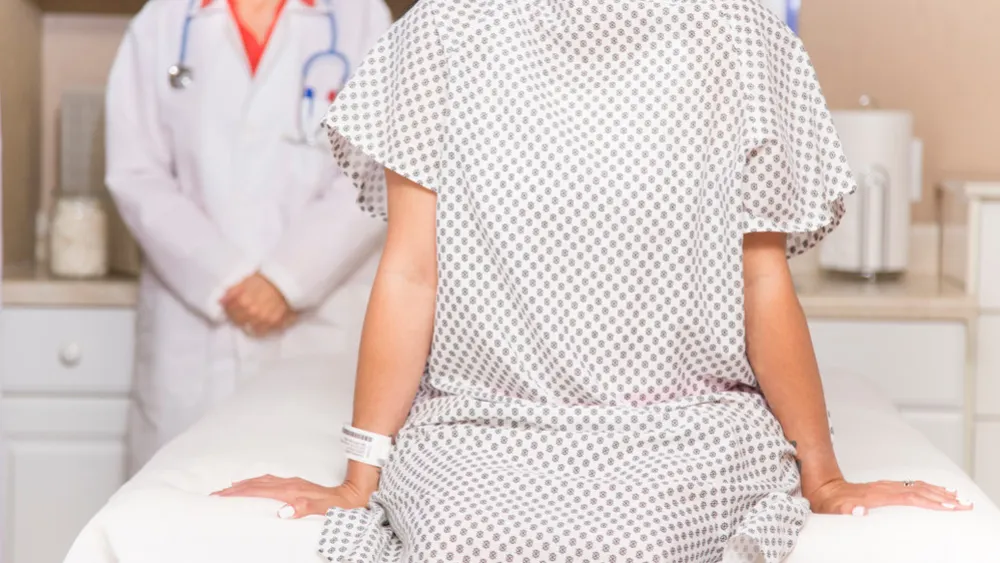Women's Health
What You Should Know for Better Breast Health
Published: Oct. 1, 2021

The Eyes of a Survivor
In 1995, at the age of 37, I was diagnosed with breast cancer. I was fairly young. And while I’ve had many patients who dealt with a breast cancer diagnosis, it was during my own cancer journey that I learned what it meant to be a cancer survivor.
It’s through those eyes – as both a provider and a survivor – that I work tirelessly to help women understand their own breast health.
Know Your Breasts
Since 1995, so much has changed when it comes to guidelines for better breast health. Over time, different groups have evolved different guidelines for preventative care based on research they feel is important. And while those are steps in a positive direction, it has become really confusing for many patients to know exactly what to do when it comes to breast cancer screening.
Today’s breast screening guidelines really depend on your age, family history, personal history and what’s found on a physical exam. By talking with your Methodist Physicians Clinic provider, you can get a better assessment on how to take care of your personal breast health.
Better Breast Awareness
Experts used to recommend a self-breast exam every month. Today, that’s evolved to basic breast awareness.
Breast awareness means you should know what your breasts are like – how they look and feel, and their normal characteristics – and examine them often enough that you remember. That doesn't mean you have to have a monthly exam. It just means you should become familiar with your breasts and then get a better assessment from your provider if you notice changes.
Changes You Should Discuss With Your Provider
On your self-exams, what exactly should you be looking for?
Bloody nipple discharge: Women can sometimes have a clear or milky white discharge, which is normal. What may be abnormal is if that discharge is bloody and if it's coming from only one breast. It may not be cancer, but could be a concern.
Nipple retraction: Nipple retraction, also called nipple inversion, invaginated nipple or inverted nipple, is when the point of the breast turns inward or become inverted and is pulled inward. It can happen when there’s inflammation or scarring of the tissue behind the nipple. It can be caused by many different things, but it’s a change you should talk about with your provider.
Dimpling of the breast: Breast dimpling means your skin may take on the texture of an orange peel. There are benign reasons why this can happen, but the symptoms can also be a concerning sign of cancer.
Color changes: Changes in thickness and the skin color over your breasts could be signs of breast cancer. This is something you should bring up to your provider, and if your annual visit isn't for several months, going in for an additional visit would be important.
Feeling a lump: If you feel something that feels different, like a hard lump, marble or BB inside your breast, see your provider right away.
Even if you’re not sure of what you see or feel, schedule an appointment with your health care provider. We're never going to be upset that you came in for an extra visit. It's very important you get reassurance that everything is OK. If we need to do additional testing to complement the breast exam, we can order that at that time.
Dr. Susan Westcott
Retired Methodist Physicians Clinic Gynecologist
Genetic Screening
Genetic screening can be a big component when it comes to breast health. I’ve spent many office visits just talking about whether a patient should do genetic screening. Some women think it’s a decision that can be made quickly and easily, and maybe they don't understand what that means. Others have strong family histories and need some help to figure out a surveillance plan.
A lot has evolved and will continue to evolve, and we just have to work with the providers to try and keep up with those recommendations.
What if It’s Cancer?
As a survivor myself, I just can't emphasize enough – all the resources you need are here at Methodist to get you through breast cancer treatments if you need them. Survivorship rates are much higher than when I was diagnosed due in part to the tremendous strides that have been made through the years.
We have a wonderful breast cancer treatment program throughout Methodist Health System, starting with imaging – whether you need a mammogram or MRI. We also have excellent surgeons in Omaha and our surrounding areas, including our new location in the medical office building on the Methodist Women’s Hospital campus.
We have a wide variety of experts and specialists that can provide additional resources when we need further help identifying what's going on with your breasts.
Good breast health is essential, and knowing your breasts is so important. Those two steps saved my life, and they can do the same for you.
More Resources
- Read more cancer care stories.
- Schedule a mammogram in Omaha, Fremont or Council Bluffs.
- Learn more about breast cancer treatment at Methodist.

